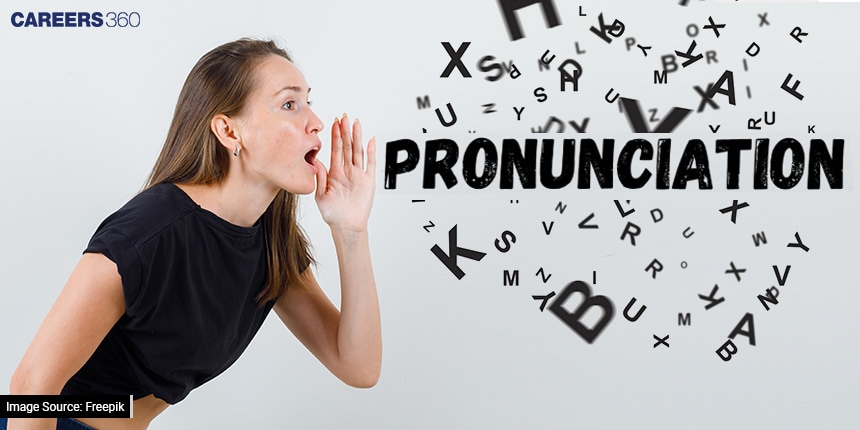Have you ever found yourself talking about that amazing dog breed, the Belgian Malinois, only to hesitate a little when it comes to saying its name out loud? You're definitely not alone, you know. It's a rather common thing for folks to feel a bit unsure about how to properly voice this particular dog breed's designation. This hesitation can be a real moment of awkwardness, especially when you are trying to share your passion for these incredible animals with others. Getting the name right just feels good, and it shows a certain respect for the breed itself, too it's almost.
There is something about the name "Belgian Malinois" that just seems to invite a little bit of a pronunciation puzzle. Is it "Mal-in-oy"? Or maybe "Mal-in-wah"? People often wonder about the silent letters, and how the sounds flow together. This kind of phonetic challenge is actually quite similar to what we see in other languages, where a single letter can have multiple sounds depending on its spot in a word. For example, in German, as my text points out, differentiating between the /s/, /ʃ/ (like 'sh'), and /z/ sounds for a written 's' can be a real head-scratcher, depending on its position. So, it's not just you struggling with "Malinois"; it's a general feature of how languages work, and sometimes, sounds shift.
Learning the correct way to say "Belgian Malinois" is more than just about sounding proper; it is about clear communication and showing you truly appreciate this fantastic dog. Think about it: when you can confidently speak the name, you connect better with other dog lovers and feel more like an expert yourself. Plus, it helps avoid any confusion, which is pretty helpful. This guide is here to help you get it right, offering simple steps and insights into the sounds that make up this unique name. You will find that once you grasp a few key points, saying "Belgian Malinois" will become second nature, like your own name, and you will be able to share your knowledge with confidence.
Table of Contents
- The Heart of the Matter: What is a Belgian Malinois?
- Breaking Down the Sounds of "Malinois"
- Why Is It So Tricky? Drawing Parallels
- Tips for Mastering the Pronunciation
- Common Mispronunciations to Avoid
- Frequently Asked Questions
- Bringing It All Together
The Heart of the Matter: What is a Belgian Malinois?
Before we get into the nitty-gritty of how to say the name, it helps to know a little bit about the dog itself, doesn't it? The Belgian Malinois is a medium-to-large-sized dog breed, a kind of shepherd dog, originally from Belgium. These dogs are very well-known for their intelligence, high energy, and strong work ethic. They are often used in police and military roles, as well as in search and rescue operations, which is pretty amazing. They are truly remarkable working dogs, and that is a fact.
Their history is deeply tied to their working roots, being one of four types of Belgian Shepherd Dogs. The Malinois type was named after the city of Malines (Mechelen in Dutch), which is in Belgium. This geographical connection is really important because it gives us a big clue about how the name should be spoken. The French influence on the name, coming from a region where French is spoken, means we need to consider French phonetic rules, which can be a bit different from English, obviously.
Breaking Down the Sounds of "Malinois"
Let's take the name apart, piece by piece, to make it easier to say, so. It is not as hard as it seems once you know the basic sounds. We will look at "Belgian" first, and then tackle the trickier "Malinois" part. Getting these pieces right will help you put the whole name together smoothly, and that is what we are aiming for.
The "Belgian" Part
The first part, "Belgian," is usually pretty straightforward for English speakers. It is pronounced just like the country: "BEL-jun." The stress is on the first syllable, the "BEL" part. This word does not typically cause any trouble, which is a relief, honestly. You say it just like you would say "Belgium" but with an "an" ending, and that is about it.
The "Malinois" Part: The Real Puzzle
Now, this is where it gets a little more interesting, isn't it? The word "Malinois" comes from French. In French, certain letter combinations make sounds that are not always intuitive for English speakers. The key to "Malinois" is understanding its French roots. The phonetic pronunciation is generally accepted as "MAL-in-wah." Let's break that down, piece by piece, because it is very important to get each sound right.
The first syllable, "MAL," sounds just like the beginning of "malfunction" or "malice." It is a clear "mal" sound, with the "a" like the "a" in "cat" or "apple," rather. This part is typically not too difficult for most people to get right, which is good news, obviously. It is a very open sound, and that is how you should think of it.
The middle syllable, "i-nois," is where some people get stuck. The "i" here is pronounced like the "i" in "machine" or "ski." It is a long "ee" sound. So, you have "MAL-ee." This sound is often confused, but once you hear it, it becomes quite clear. It is not like the "i" in "sit," for instance, which is a common mistake people make, you know.
The final part, "nois," is the most distinctively French sound. The "oi" combination in French often makes a "wah" sound, as in the French word "roi" (king). So, "nois" becomes "wah." This is the part that truly gives the word its authentic sound. It is not "noyce" or "noys"; it is definitely "wah," which is a bit different from what you might expect, sometimes.
So, putting it all together, you get "MAL-in-wah." The stress falls on the first syllable, "MAL," just like in "Belgian." This is a crucial point, as it helps the whole word flow properly. The emphasis on the first part of the word is what makes it sound correct and natural, very. It is not evenly stressed, and that is a key difference to remember.
Understanding the Silent 'S'
One of the biggest questions people have about "Malinois" is about the "s" at the end. Is it pronounced? The answer is no, it is silent. This is a very common feature in French words, where many final consonants are not spoken. So, you do not say "Malinoyz" or "Malinoys." It is simply "Malinwah," ending cleanly with that "wah" sound. This is very much like how you would handle the final 'g' in certain German words, as my text hints at, where "the pronunciation of a sound is always influenced by surrounding sounds, often in ways that speakers are not aware of, because their language does not differentiate between these versions." The silent 's' is just another example of how language sounds can be shaped by their position, basically.
Why Is It So Tricky? Drawing Parallels
You might wonder why this particular name causes so much trouble, right? Well, it goes back to the subtle differences in sounds between languages, similar to the challenges faced when learning German, as mentioned in my text. For example, my text brings up the difficulty of distinguishing between 's', 'sch', and 'z' sounds in German, asking "how can i differentiate between the pronunciations /s/, /ʃ/ and /z/ for your average s in written german?". This shows that even a single letter can have many different sounds depending on its spot in a word, or what letters are around it. The "oi" sound in "Malinois" is a lot like that; it is not what an English speaker would expect from those two letters together, which is a common stumbling block, you know.
Another point from my text is about vowel sounds, like getting the "ü" just right in German. It says, "The ü is ever so slightly off." This highlights how even a tiny shift in how you shape your mouth for a vowel can change the sound significantly. The "i" in "Malinois," sounding like "ee," is a bit like that. If you say it like the "i" in "sit," it will be slightly off, just like the German "ü" can be. It is these little, subtle differences that make pronunciation a bit of a puzzle for non-native speakers, and that is often the case.
My text also touches on how "the r is rolled in a way that doesn't sound German" for some non-native speakers. While "Malinois" doesn't have a rolled 'r', the idea is the same: sometimes, a sound we are used to making in our own language doesn't quite fit in another. The "wah" sound for "ois" is a perfect example of this. We do not have a direct equivalent for that "oi" combination in English, so it takes a little practice to get the mouth shape just right, which is often what happens. These linguistic nuances are what make language learning, and even just pronouncing foreign words, a bit of a fun challenge, too it's almost.
Tips for Mastering the Pronunciation
Getting the pronunciation down takes a little bit of practice, but it is totally doable. Here are some simple tips to help you sound like a pro. These methods are pretty effective, and many people find them useful, so.
- Listen to Native Speakers: The best way to learn is by listening. Search for videos of Belgian Malinois dogs on YouTube or dog show commentary. Pay close attention to how the commentators or breeders say the name. Many dog enthusiasts and experts will say it correctly, and that is a great resource, you know.
- Break It Down and Build It Up: Start by saying "MAL." Then add "in." Finally, add "wah." Put them together slowly: "MAL-in-wah." Speed it up gradually until it sounds natural. This step-by-step approach really helps, especially with words that have unfamiliar sounds, which is often the case.
- Focus on the "Wah" Sound: This is the most distinctive part. Practice saying "wah" by itself. Think of it like the sound you might make when you are surprised, but softer. Getting this sound right will make a big difference to the overall pronunciation, very.
- Remember the Silent 'S': Make a conscious effort to not pronounce the "s" at the end. Just let the word finish with the "wah" sound. This is a common French rule, and remembering it will help you avoid a common mistake, which is pretty helpful.
- Record Yourself: Say the name out loud and record it on your phone. Then, listen back and compare it to how a native speaker says it. This can help you spot where you might be slightly off, and you can adjust accordingly, too it's almost. It is a very effective way to self-correct, and that is a fact.
- Practice Regularly: Like any skill, pronunciation gets better with practice. Say the name a few times every day. The more you say it, the more natural it will feel, and the easier it will become to say it without thinking, which is the goal, really.
Common Mispronunciations to Avoid
Knowing what to avoid can be just as helpful as knowing what to do, honestly. Here are some common ways people mispronounce "Malinois," and why they are not quite right. Steering clear of these will help you sound more accurate, you know.
- "Mal-in-oys" or "Mal-in-oyz": This is probably the most common mistake. It involves pronouncing the "s" at the end, which, as we discussed, should be silent. It also often misinterprets the "oi" sound. Remember, the "s" is quiet, just like the final "g" in some German words, as my text points out with "könig" and "leipzig" where the "g" is pronounced as [ç], which is not a hard 'g' sound, basically.
- "Mal-i-noise": This one puts the emphasis on the "noise" part and mispronounces the "oi" as in English "noise." This is incorrect because the "oi" should be a "wah" sound, and the emphasis should be on the first syllable. It is a very different sound, and that is important to note.
- "Mal-in-wahs": While closer, this still adds an "s" sound at the end. The "wah" should be the very last sound you hear. Just let it end smoothly, without any extra hiss, which is often what happens when people try to add the 's' sound.
Frequently Asked Questions
How do you pronounce "Malinois" correctly?
The correct pronunciation of "Malinois" is "MAL-in-wah." The first syllable, "MAL," sounds like "mal" in "malfunction." The "i" is like the "ee" in "machine," and the "nois" part is pronounced "wah," with a silent "s" at the end. The emphasis is on the first syllable, which is pretty important, you know.
Is "Malinois" pronounced with a silent 's'?
Yes, absolutely. The "s" at the end of "Malinois" is silent. This is a common feature in French pronunciation, where many final consonants are not spoken. So, you do not hear any "s" sound at the very end of the word, which is a key point to remember, very.
What is the origin of the "Malinois" name?
The name "Malinois" comes from the city of Malines, which is Mechelen in Dutch, located in Belgium. This city was an important center for the development of this particular type of Belgian Shepherd dog. The French influence in the region gave rise to the French spelling and pronunciation of the name, which is why we follow French phonetic rules for it, obviously.
Bringing It All Together
Learning the correct pronunciation of "Belgian Malinois" is a small step that makes a big difference in how you talk about these amazing dogs, so. By understanding the French origins and focusing on the "MAL-in-wah" sound with its silent "s," you can speak with confidence and accuracy. It is a bit like learning the subtle differences in German pronunciation, where, as my text says, "the pronunciation of grüß dich on that site is decent but doesn't sound like a native speaker's" because of a slightly off 'r' or 'ü'. Getting these small details right really helps you sound more natural and knowledgeable, you know. Keep practicing, listen to how others say it, and soon you will be pronouncing "Belgian Malinois" like a true expert, which is pretty cool.
Want to learn more about dog breeds and their unique characteristics? We have a lot more information on our site. And if you are interested in the specific traits of the Belgian Malinois, you can find more details there too. Keep exploring the world of dogs, and keep learning new things, because there is always something new to discover, which is a fact.
For further reading on phonetic sounds and language, you might find resources on the International Phonetic Alphabet (IPA) helpful, as my text refers to it for German words like "könig" and "leipzig."



Detail Author:
- Name : Abe Abshire IV
- Username : zaria30
- Email : rschuster@gmail.com
- Birthdate : 2003-12-28
- Address : 369 Conrad Glen Aracelychester, NV 89196-5619
- Phone : +1-480-425-7726
- Company : Funk Ltd
- Job : Command Control Center Specialist
- Bio : Cumque officia velit vel voluptas quas nobis iste fugit. Id vel nihil et qui ipsa quo quod. Magni quasi dolorum quisquam quia quo.
Socials
facebook:
- url : https://facebook.com/brisalittel
- username : brisalittel
- bio : Consequatur sunt at voluptate voluptatem ad enim.
- followers : 1181
- following : 2570
linkedin:
- url : https://linkedin.com/in/brisa_littel
- username : brisa_littel
- bio : Excepturi enim voluptates optio et.
- followers : 5664
- following : 836
instagram:
- url : https://instagram.com/brisa_littel
- username : brisa_littel
- bio : Qui porro eos at qui. Suscipit cupiditate et ab et. Perspiciatis qui et deleniti et.
- followers : 5472
- following : 576

